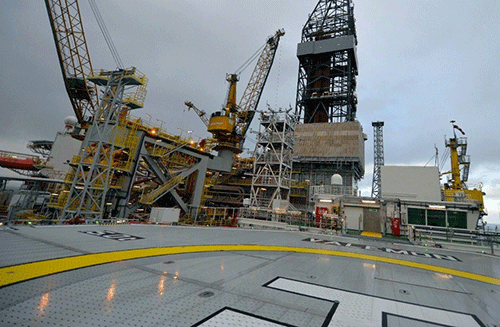Following sentiments that Namibia’s proven Kudu gas reserves should be seen in a different light after recent offshore oil discoveries, reports have emerged that TotalEnergies and Shell have been instructed to work with the operator to develop the natural gas field. This is according to a report by Upstream Online, which reported that government wants relevant oil majors to “work closely with BW Energy, operator of the Kudu gas project, on a joint development plan for the huge volumes of natural gas that the trio have found in the Orange basin”.
While New Era awaits clarity on these instructions from officials, it was at this year’s Oil and Gas Conference 2023 in the capital where Petroleum Commissioner in the mines and energy ministry, Maggy Shino, said “Our animal has refused to die, and more life is being pumped into it. We, therefore, call upon you to look at the project (Kudu Gas) now with a new vision with a new lens and as a new opportunity because of additional gas reserves that we found.”
Namibia has long been contemplating the development of the Kudu gas field in the northern Orange sub-basin, in the same vicinity of the recent oil discoveries. The Kudu gas field was discovered in 1974, and is delineated by seven subsequent wells.
Some six years ago, the licensed Kudu Gas operator, BW Energy, entered into a farm-in agreement for a 56% operated interest, with the National Petroleum Corporation of Namibia (Namcor) holding a 44% joint venture interest. Two years ago, BW Energy signed a farm-up agreement with Namcor, increasing the corporation’s interest to 95% in the licence, and closed the transaction in 2021
According to Shino, Namibia’s development plans for Kudu include a floating platform located at 170 kilometres offshore within the block owned by the joint venture.
“With this floating platform, we are then going to build a pipeline that is going to move the gas from offshore to Lüderitz to a point called Elizabeth Bay, where we are going to put up a power batch to convert the natural gas which we produce into electricity,” she said at the conference while laying out the development plans.
The commissioner noted that Namibia has a well-connected power network which extents or connects the country to South Africa, Zambia, Botswana and Angola.
“It’s now a project that is backed by infrastructure, and it is a clean energy source. With the production of electricity from natural gas, we are able to provide an energy transition solution, and being able to lower our carbon emission as a continent and also as a nation. There is a need for us to have baseload power, and the Kudu Gas project is the only solution that can give us baseload power. Only with baseload power are you able to industrialise as a nation”, said Shino at the time.
She further assured conference participants that Namibia was looking at an opportunity not only to have its lights on, but also to become an industrialised nation by ensuring adequate power is provided.


